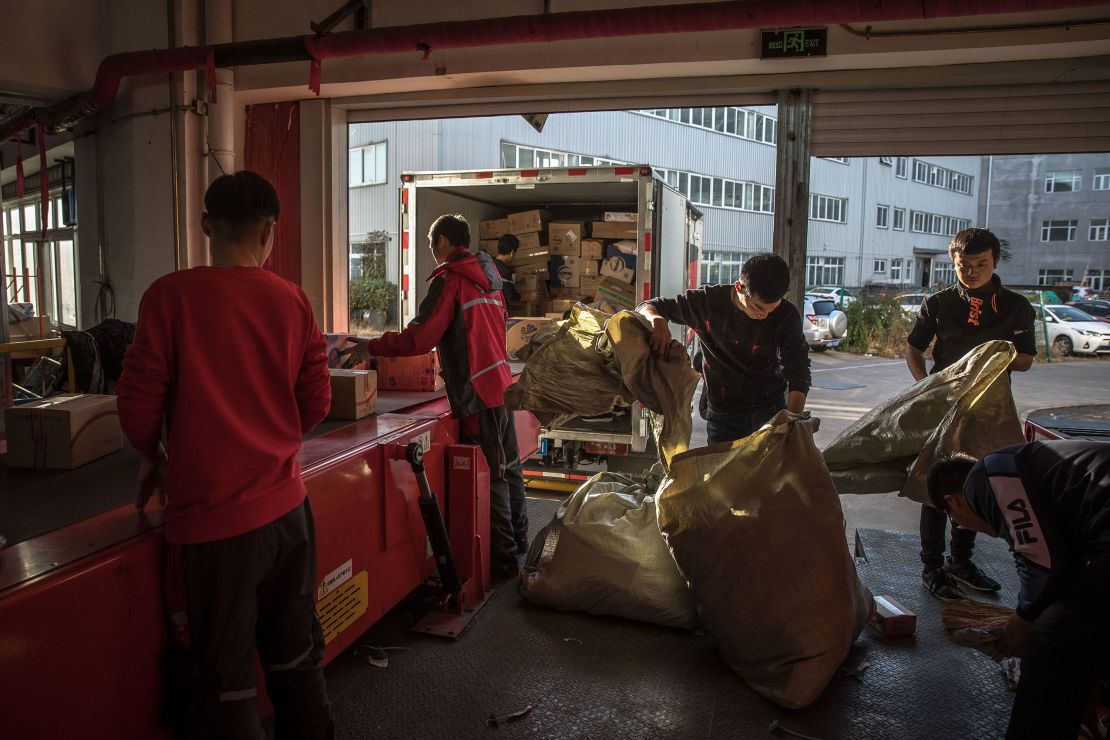The Chinese government has made saving jobs a major priority as the coronavirus outbreak disrupts businesses and sends shockwaves across the world’s second biggest economy. Now some of the most prominent companies in China are taking in displaced workers to help cushion the blow.
JD.com (JD), one of China’s largest e-commerce firms, has promised to open up more than 20,000 new positions. It’s hiring warehouse workers, couriers and drivers.
The jobs are meant to “minimize the impact of the epidemic on employment in the short term,” JD.com said in a statement, adding that it wants to “support stable employment.” The company said some of the positions will be temporary.
Dada Group, a local on-demand delivery provider that is backed by JD, will create an additional 15,000 positions.
JD.com’s supermarket chain, 7FRESH, will also reach out to employees from restaurants, hotels, cinemas and retail outlets “that are temporarily closed due to the coronavirus,” the company said in a statement.
These workers will be eligible for new short-term positions, including shop clerks, packaging assistants and delivery couriers, according to the company.
Alibaba (BABA) announced a similar plan this week. On Monday, it introduced an “employee-sharing” scheme that would allow those who work in hospitality, dining, movie theaters, department stores and various other businesses to find temporary jobs at the company. It declined to share an estimate on how many workers would be eligible.
Some workers have already found jobs through these initiatives. JD.com said Wednesday that its logistics unit has taken in at least 700 employees from more than 10 companies, adding that the firm is continuing to work with partners, staffing agencies and restaurants to recruit more people in thousands of cities.

One of the company’s divisions, JD Daojia — a popular online service that delivers groceries and fresh produce for supermarkets such as Walmart (WMT) and Aldi — will recruit about 5,000 workers to help pack orders.
The new measures help address two challenges at the same time. Online shopping has been rising as tens of millions of people stay quarantined at home, and Chinese President Xi Jinping has urged companies in China to work on expanding digital consumption.
“It is JD’s responsibility to work with partners and help them and their employees get through this special time,” said Chunhua Cao, who leads human resources at 7FRESH, JD.com’s supermarket division.
The outbreak has now killed more than 1,100 people and infected at least 45,000, mostly in mainland China.
More than a dozen cities were put on lockdown in late January to contain the virus, but the government is worried about businesses staying shut for too long. China’s economy is already in trouble, and analysts have warned that the virus could weigh heavily on growth this quarter, as well as slow the global economy.
Xi said Monday that the government would focus on stabilizing business activity and preventing mass layoffs.
In recent years, the government has said it has to create 11 million new jobs annually to keep employment on track.
This year is particularly important because it marks the conclusion of the government’s 13th Five-Year Plan, during which it promised to establish a “moderately prosperous society” and end poverty.
Senior members of the Communist Party’s Politburo — the seven most powerful men in China — said last month that all efforts must be taken to achieve those goals in 2020.
— CNN’s Eric Cheung and Laura He contributed to this report.


























